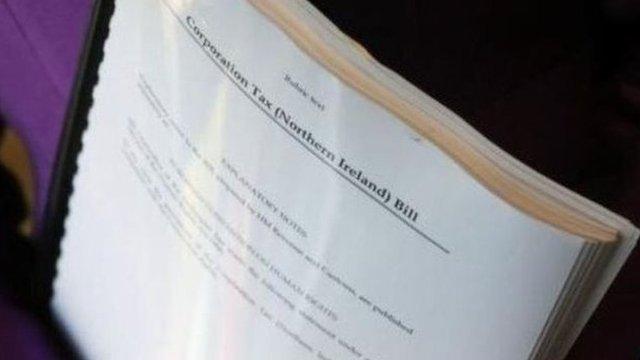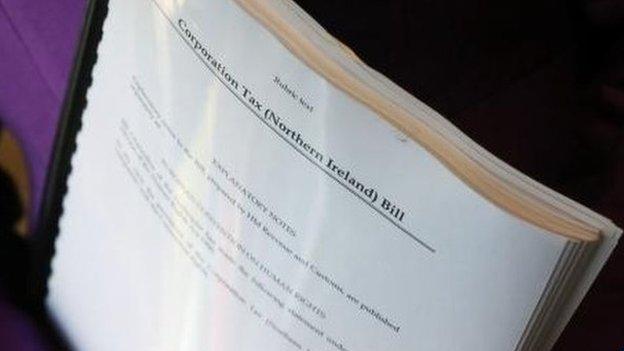NI corporation tax: Political crisis presents problems
- Published

Devolving corporation tax was a hard-fought campaign
Northern Ireland's political crisis could kill off plans to cut corporation tax to 12.5% in April 2018.
This hard-fought-for policy united local political parties, but doubt now hangs over it.
There are several reasons why. Firstly, although the legislation is in place, it needs a final green light from government.
The Northern Ireland Executive must demonstrate its finances are on a sustainable footing.
Does a potential £490m blunder over the Renewable Heat Incentive (RHI) scheme undermine that?
This is, perhaps, arguable.
Potential hurdles
We are talking about finding £20-30m a year for 20 years to cover an RHI overspend, a small part of a £10bn annual block grant.
But the crisis has put other hurdles on the horizon.
The Northern Ireland Assembly must pass a rate recommended by the finance minister in the year before it applies.
How soon will there be an executive or assembly the other side of an election?
And will there then be a greater reluctance about paying for corporation tax with a £200m cut to the block grant?
Big idea
Any return to direct rule from Westminster might not offer an immediate solution either.
European Union state aid rules apply until Brexit and they only allow devolution of corporation tax to a region which has "institutional autonomy".
It is premature to pronounce Northern Ireland's big economic idea as dead.
But in the here and now, things look mightily challenging - can Invest NI promote a rate and a date to overseas companies with any certainty?
Even before the political crisis, some experts felt 2018 was ambitious anyhow for companies to adapt to new rules.
And all the while, the main UK rate of corporation tax is falling, blunting the attractiveness of what Northern Ireland wants to offer.
- Published17 March 2015
